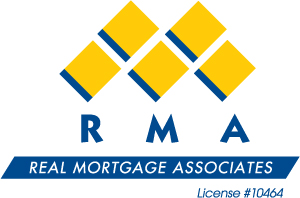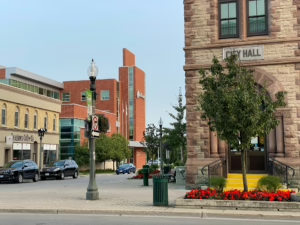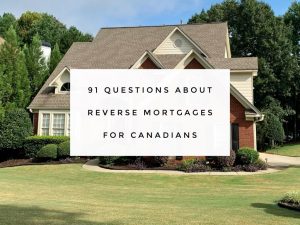You’ve got questions about reverse mortgages in Canada, and the good news is that we’ve got answers. Browse all of your questions about reverse mortgages, or use the table of contents if you have something specifically you’re looking for. As always, we’d love to hear about your specific retirement goals and help you find the best solution to get there, so fill out the form at the bottom to get in contact with a broker.
Table of Contents
- Basics and Eligibility
- Benefits and Drawbacks
- Financial Aspects and Comparison
- Usage and Restrictions
- Repayment and Moving
- Heirs and Estate Planning
- Payments and Repayment Terms
- Application and Documentation
- Home and Property Considerations
- Legal and Regulatory Aspects
- Risks and Protections
- Misconceptions and Clarifications
- Transparency and Negotiations
- Inflation and Market Conditions
- Counseling and Support
- Security and Risk Management
- Additional Questions
Canada Reverse Mortgage Basics and Eligibility
1. What is a reverse mortgage, and how does it work?
A reverse mortgage allows homeowners aged 55 and older to convert part of their home equity into cash without selling their home. Instead of making monthly payments to a lender, the lender pays you. The loan accrues interest over time and doesn’t need to be repaid until the homeowner sells the house, moves out, or passes away.
2. Who is eligible for a reverse mortgage in Canada, and what are the criteria?
Canadian homeowners aged 55 or older are eligible for a reverse mortgage, and the home must be their principal residence. The amount you can borrow depends on your age, the value of your home, its location, and the amount of equity in it.
3. Are there age requirements for obtaining a reverse mortgage?
Yes, the homeowner must be at least 55 years old to qualify. For couples, both must meet the age requirement.
4. Can I add someone else to my reverse mortgage, such as a spouse?
Yes, if both individuals meet the age requirement. Adding a younger spouse can impact the amount you can borrow.
Benefits and Drawbacks
5. What are the benefits of a reverse mortgage, and are there alternatives I should consider?
Benefits include accessing home equity without selling the property, no monthly mortgage payments, and tax-free funds. Alternatives to consider include home equity lines of credit (HELOC), downsizing, or selling and renting, each with different implications on financial health and estate planning.
6. What are the drawbacks and risks associated with a reverse mortgage, especially for high-value homes?
Drawbacks include accruing interest, decreasing home equity over time, and potential impacts on inheritance. For high-value homes, while larger loans can be obtained, the risk increases if property values decline. It’s important to speak with a financial advisor to weigh the pros and cons.
7. How does a reverse mortgage affect my current mortgage?
Any existing mortgage must be paid off using the reverse mortgage proceeds. The remaining funds can then be used for other purposes.
8. Can I use a reverse mortgage to pay off my existing mortgage?
Yes, this is one common use of reverse mortgage funds. It can eliminate existing monthly mortgage payments and improve cash flow.
Financial Aspects and Comparison
9. How is a reverse mortgage different from a traditional mortgage?
In a traditional mortgage, you make monthly payments to a lender, reducing debt over time, and you require an income to obtain a mortgage. In a reverse mortgage, the lender pays you, and the debt increases over time with interest. There is no requirement to show an income for a reverse mortgage (unlike a Home Equity Line of Credit, for instance).
10. What are the interest rates and fees associated with reverse mortgages, and how do I compare different offers to choose the best one?
Interest rates for reverse mortgages are typically higher than those for traditional mortgages and may include fees such as origination fees, closing costs, and servicing fees. To compare offers, look at interest rates, fees, terms and conditions, and customer service. Consulting with a financial advisor or broker can help ensure you choose the best option for your needs.
11. Can I refinance my reverse mortgage if I find a better deal?
Refinancing is possible, but you may incur early repayment fees and new closing costs. Evaluate the cost-benefit carefully before refinancing.
12. What should I look for in a reverse mortgage lender or broker?
Look for transparency, good customer service, competitive rates, low fees, and positive customer reviews. Ensure they are reputable and licensed.
Usage and Restrictions
13. Can I use a reverse mortgage to delay CPP (Canadian Pension Plan) withdrawals?
Yes, using a reverse mortgage to meet immediate financial needs can allow you to delay CPP withdrawals, increasing your future benefits due to the delayed start.
14. Can a reverse mortgage affect my ability to qualify for other financial products or benefits?
A reverse mortgage may limit other financing options secured by your home. You may not be able to take out a HELOC or similar products at the same time. You may also need to pay off and close any loans or lines of credit secured by your home. Reverse mortgage funds are typically not taxable and do not affect your ability to qualify for government benefits.
15. Are there any restrictions on using the money from a reverse mortgage?
No, there are generally no restrictions. You can use the funds for any purpose, including home repairs or renovations to allow you to age in place, medical expenses, luxury items, or travel.
16. Can I use reverse mortgage funds to invest in other financial products or opportunities?
Yes, you can invest the funds; however, it’s advisable to consult a financial advisor to ensure that your investments align with your risk tolerance and financial goals.
Repayment and Moving
17. What happens to my reverse mortgage if I move, sell my home, or enter a long-term care facility?
The loan becomes due and payable when you sell the home, move out, or permanently move into a long-term care facility. You or your heirs will need to repay the loan amount plus any accrued interest and fees.
18. What happens to the reverse mortgage when I pass away?
The loan becomes due, and your estate must repay it. This is usually done by selling the home or refinancing the loan.
19. Can taking a reverse mortgage impact my eligibility for government programs or pensions?
It may impact income-tested benefits like the Guaranteed Income Supplement. However, reverse mortgage funds are generally not considered taxable income.
Heirs and Estate Planning
20. How does a reverse mortgage affect my heirs and their inheritance?
Heirs must repay the loan if they wish to keep the home (like paying off a traditional mortgage if there was a balance). If they sell the house, any remaining proceeds after repaying the loan go to them as inheritance.
21. How does a reverse mortgage impact my estate planning?
A reverse mortgage reduces the equity in your home, which can affect the value of your estate. It’s important to discuss with an estate planner to understand the full implications.
22. What are the implications for co-owners or co-borrowers on the reverse mortgage?
Both co-owners must meet the age requirements (55+ in Canada) and agree to the loan terms. The younger borrower’s age may affect the loan amount available.
Payments and Repayment Terms
23. What are the repayment terms for a reverse mortgage?
Repayment is typically required when the homeowner sells the home, moves out permanently, or passes away. There are no monthly repayments required during the loan term.
24. Can I make payments on the principal of a reverse mortgage while I am living in the home?
Yes, but it is optional. Making payments can help reduce the debt and accrued interest.
25. Are reverse mortgage funds delivered in a lump sum, monthly payments, or both?
Different disbursement options are available, including a lump sum, monthly payments, or a combination of both. The choice depends on your financial needs.
Application and Documentation
26. How do I apply for a reverse mortgage in Canada, and where can I find an independent financial advisor to help me decide?
To apply, start by contacting a broker or lender who can help you evaluate reverse mortgage offers. You’ll need to complete an application, provide necessary documentation, and undergo a home appraisal. To find a financial advisor, look through professional associations like the Financial Planning Standards Council or seek referrals from friends and online reviews.
27. What documentation is required to apply for a reverse mortgage?
Documentation typically includes proof of age, identification, property deed, mortgage statements, insurance proof, and income statements. The lender provides a detailed list.
Home and Property Considerations
28. What types of homes are eligible for a reverse mortgage?
Most types of homes including single-family residences, townhouses, and some condos are eligible. The home must be well-maintained and meet the lender’s criteria with a minimum market value which varies by lender.
29. How is the value of my home determined for the reverse mortgage?
The property’s value is determined through a professional appraisal, taking into account market conditions and comparable home sales in your area.
30. Can I make improvements to my home if I have a reverse mortgage?
Yes, you can make improvements to your home, and many homeowners use reverse mortgage funds for this purpose. However, the home must be maintained to meet lender requirements.
Legal and Regulatory Aspects
31. Do I still retain ownership of my home with a reverse mortgage?
Yes, you retain ownership and can live in the home as long as you meet the loan obligations, such as maintaining the property and paying property taxes.
32. Are there any government regulations to protect borrowers of reverse mortgages in Canada?
Yes, regulations include mandatory independent legal advice and limits on the amount that can be borrowed. These measures are designed to protect borrowers.
33. Is it mandatory to get independent legal advice before signing a reverse mortgage agreement?
Yes, Canadian regulations require you to obtain independent legal advice to ensure you fully understand the contract and its implications.
34. What role does the Canadian government play in regulating reverse mortgages?
The government sets regulations and consumer protection measures, including mandatory independent legal advice and maximum loan amounts, to protect borrowers.
Risks and Protections
35. What happens if the value of my home decreases after taking a reverse mortgage?
Reverse mortgages in Canada are non-recourse loans, meaning you and your heirs are not responsible for repaying more than the home’s value at the time of sale.
36. Can I lose my home with a reverse mortgage? If so, how?
Loss of home can occur mainly if you fail to meet the loan obligations, such as paying property taxes or maintaining the home. Otherwise, as long as you comply, you can stay in your home.
37. How does a reverse mortgage affect the saleability of my home in the future?
A reverse mortgage must be repaid when selling the home. When the home is sold, the proceeds will first go towards repaying the loan, just like a traditional mortgage.
Misconceptions and Clarifications
38. What are some common misconceptions about reverse mortgages?
Common misconceptions include losing ownership of your home and high risks of foreclosure. In reality, you retain ownership and can live in the home as long as obligations are met.
39. Can I outlive my reverse mortgage, and what happens if I do?
You can stay in your home for as long as it remains your principal residence and you meet loan obligations, regardless of your age. The loan only becomes due upon moving out or passing away.
40. How does a reverse mortgage affect my credit score?
Reverse mortgages do not directly affect your credit score since there are no monthly payments reported to credit bureaus. However, meeting your financial obligations remains important.
41. Are the proceeds from a reverse mortgage taxable?
No, reverse mortgage proceeds are not considered taxable income. This allows you to use the funds tax-free for any purpose.
42. Can my heirs contest or dispute the terms of the reverse mortgage after my passing?
Heirs can contest the terms, but the loan agreement is a legal contract. It’s advisable to discuss the reverse mortgage with your heirs and an estate planner beforehand to avoid disputes.
You might also want to check out this complete guide to reverse mortgage myths for an in-depth explanation of common misconceptions.
Transparency and Negotiations
43. How transparent are the interest rates and fees associated with reverse mortgages?
Lenders are required to disclose all fees, interest rates, and terms clearly. Ensure you read all documentation carefully and ask for clarifications if needed.
44. What is the minimum and maximum age to qualify for a reverse mortgage?
In Canada, the minimum age is 55 years old. There is no maximum age as long as you meet the loan obligations and the home remains your principal residence.
45. What are the steps to take if I want to renegotiate the terms of my reverse mortgage?
Contact your lender to discuss your concerns or request changes.
46. Can I negotiate the terms and conditions of a reverse mortgage agreement?
Certain terms may be negotiable, like interest rates and loan fees. It’s beneficial to discuss your needs with the lender to see what can be adjusted.
Inflation and Market Conditions
47. How does inflation affect the value of the reverse mortgage over time?
Inflation can erode the real value of the funds you receive but does not affect the nominal loan amount. Consider how inflation may impact your long-term financial needs, from living expenses (like utilities and groceries) to discretionary spending (like travel or entertainment).
48. What are the historical trends in reverse mortgage interest rates in Canada?
Interest rates for reverse mortgages have generally followed broader market trends. They are often higher than traditional mortgage rates due to the deferred payment structure.
49. Are reverse mortgages indexed to market conditions or are they fixed?
Some reverse mortgages offer fixed rates, while others are variable and can fluctuate with market conditions. Review the terms with your Canada Reverse Mortgage Centre broker.
Counseling and Support
50. What is the lender’s policy on reverse mortgage counseling and support throughout the loan period?
Policies vary by lender; some offer ongoing support and annual reviews. It’s important to choose a lender with a strong customer service reputation. The brokers at Canada Reverse Mortgage Centre can help you evaluate the various lenders.
Security and Risk Management
51. Are there protections in place for spouses or co-borrowers in reverse mortgage agreements?
Yes, Canadian regulations ensure that spouses and co-borrowers can stay in the home without repaying the loan immediately if one borrower passes away, provided they are listed on the mortgage.
52. How do I protect myself from potential scams or fraudulent reverse mortgage offers?
Work with reputable, well-known lenders and seek independent legal and financial advice. Avoid unsolicited offers and verify the lender and broker’s credentials.
Additional Questions
53. What is the process for getting a reverse mortgage appraised?
A professional appraiser will assess your home’s market value based on its condition, location, and comparable recent sales. This appraisal is necessary to determine the loan amount.
54. Can I end a reverse mortgage early, and if so, what are the penalties or fees?
Yes, you can end a reverse mortgage early, but you may incur early repayment fees. It’s important to read the terms and conditions of your agreement.
55. What is the maximum amount I can borrow through a reverse mortgage?
The maximum amount depends on factors such as your age, the home’s value, and the lender’s criteria. Generally, the older you are and the more valuable the home, the more you can borrow. While specifics affect the amount you can borrow, the maximum is 55% of your home’s market value.
56. Are reverse mortgages only for primary residences, or can they be used for second homes and investment properties?
Reverse mortgages are generally only available for primary residences. Secondary homes and investment properties do not usually qualify.
57. What organizations or financial institutions offer reverse mortgages in Canada?
The primary providers are HomeEquity Bank (offering the CHIP Reverse Mortgage), Bloom Finance, and Equitable Bank (offering the PATH Home Plan). It’s advisable to consult with a broker to evaluate the offers of each of these institutions.
58. Can a reverse mortgage be transferred to another property if I decide to move?
Typically, reverse mortgages are tied to the property and cannot be transferred. The loan becomes due upon moving, but consult your lender for specific policies.
59. How does the reverse mortgage impact my responsibility for home maintenance and property taxes?
You are responsible for maintaining the home, paying property taxes, and homeowners’ insurance. Failure to do so can result in loan default.
60. Can I switch reverse mortgage lenders if I am not satisfied with the current one?
Yes, but switching lenders involves repaying the existing loan, which could include early repayment penalties, and taking out a new reverse mortgage, incurring new fees and costs.
61. What should I look for in a reverse mortgage lender or broker?
Look for transparency, good customer service, competitive rates, low fees, and positive customer reviews. Ensure they are reputable and licensed.
62. What happens if my home is damaged or destroyed while I have a reverse mortgage?
You are required to maintain homeowners insurance. If your home is damaged or destroyed, insurance should cover the repair or rebuilding costs, ensuring the loan terms remain intact.
63. Can I use reverse mortgage funds to help family members financially?
Yes, the funds can be used for any purpose, including helping family members with education, medical bills, renovating your home so you can age in place, or other financial needs, giving you flexibility in financial planning.
64. Does taking a reverse mortgage impact my home insurance policy?
It shouldn’t directly impact your home insurance, but maintaining valid insurance is a lender requirement. Ensure your policy covers all necessary aspects.
65. How frequently do reverse mortgage interest rates and terms change?
Fixed-rate reverse mortgages have stable terms, while variable rates can change periodically based on market conditions. Confirm the type of rate and review frequency with your lender.
66. What role do family members play in the decision-making process for a reverse mortgage?
Family involvement can help ensure all parties understand the implications for your estate. It’s advisable to discuss with family members before proceeding, especially if inheritance is a consideration.
67. Can I still bequeath my home to a charity or organization if I have a reverse mortgage?
Yes, but like a traditional mortgage, the outstanding loan must be repaid before the home can be transferred. Ensure the charity or organization is aware of the reverse mortgage obligations.
68. Are there reverse mortgage calculators available to help estimate what I can borrow?
Yes, many lenders and financial websites offer free online calculators. These tools can provide estimates based on your age, home value, and location. The brokers at Canada Reverse Mortgage Centre can help you with that calculation which can vary based on your lender.
69. What is the turnaround time from application to approval for a reverse mortgage?
The process typically takes several weeks from application to closing, including appraisal, documentation review, and legal counsel. Consult your Canada Reverse Mortgage Centre broker for specific timelines.
70. How does the reverse mortgage impact the long-term equity of my home?
Over time, accrued interest and fees reduce the equity available in your home. This impacts the amount left for heirs or other financial needs.
71. Are reverse mortgages a common choice among Canadians, and why?
Reverse mortgages are increasingly popular among Canadians seeking to supplement retirement income without selling their homes. Awareness and accessibility have grown over recent years, along with rising home market values, meaning even Canadians with a balance left on their mortgage can often leverage the difference in equity due to the rising home market.
72. Can taking a reverse mortgage influence my spouse’s ability to remain in the home if I pass away first?
If both spouses are co-borrowers, the surviving spouse can remain in the home. It’s important to include both names on the reverse mortgage to ensure this protection.
73. Are there any loan pre-payment penalties with reverse mortgages?
Some reverse mortgages may have prepayment penalties, while others do not. Always review your loan agreement for specific terms regarding early repayment.
74. What happens to the reverse mortgage if I become incapacitated or legally incompetent?
Provisions vary, but generally, the loan remains in place. It’s important to have a power of attorney set up to manage your affairs in such cases.
75. Can a reverse mortgage be used to consolidate other debts?
Yes, many homeowners use reverse mortgage funds to pay off existing debts, reducing overall monthly expenses and improving cash flow.
76. How are reverse mortgage funds disbursed and managed by the borrower?
Funds can be disbursed as a lump sum, regular payments, or a combination. Management depends on the borrower’s financial needs and preferences.
77. What types of counseling or advisory services are recommended before taking out a reverse mortgage?
It’s recommended to seek independent financial advice, legal counsel, and reverse mortgage counseling services. These advisors can help you understand the full implications and ensure it fits your financial needs. We also recommend the help of a broker who can help with evaluating multiple reverse mortgage lenders rather than going to just a single reverse mortgage provider.
78. Can a reverse mortgage be used to finance home modifications for accessibility?
Yes, many homeowners use reverse mortgage funds to make their homes more accessible, such as adding ramps, modifying bathrooms, or installing stairlifts. This can be a practical use of the loan.
79. What are the lender’s policies on loan modification for reverse mortgages?
Policies on loan modification can vary, so it’s crucial to discuss with your lender beforehand. Some may allow modifications under certain circumstances. Speak with your Canada Reverse Mortgage Centre broker about any modifications you may anticipate.
80. What impact does a reverse mortgage have on joint tenancy or home co-ownership agreements?
All owners must agree to the reverse mortgage terms, and the arrangement must comply with the co-ownership agreement. Consult with a legal advisor to understand specific.
81. How do I evaluate the financial health and reliability of a potential lender?
Check third-party ratings, consumer reviews, and official financial health reports. Look for lenders with a good track record, transparent practices, and high customer satisfaction.
82. Are there special considerations for reverse mortgages in rural areas versus urban areas?
Home values tend to be lower in rural areas, which can limit the loan amount you can borrow. However, eligibility criteria and processes are generally the same regardless of location.
83. What specific documentation do I need to provide when applying for a reverse mortgage?
Required documents typically include proof of age (ID), property deed, mortgage statements, homeowners’ insurance proof, income statements, and a home appraisal report. Your lender will provide a detailed list.
84. How do I ensure that my home remains a good investment while having a reverse mortgage?
Maintain your home well, stay updated with market conditions, and make improvements that enhance its value. Consulting with a financial advisor can also help you manage your investment effectively.
85. Can flexible payment options be customized in a reverse mortgage plan?
While reverse mortgages generally do not require monthly payments, some lenders may offer options to make voluntary payments on the interest or principal. Discuss with your lender to see what customization options are available.
86. What are the scenarios where a reverse mortgage could be a poor financial choice?
A reverse mortgage might be unsuitable if you plan to move soon, need to pass on a significant inheritance, or rely on income-tested government benefits. High costs and reduced home equity can also be deterrents.
87. Can I switch reverse mortgage lenders if I am not satisfied with the current one?
Yes, but switching lenders involves repaying the existing loan, which could include early repayment penalties, and taking out a new reverse mortgage, incurring new fees and costs.
88. What role does home appreciation play in a reverse mortgage?
Home appreciation can positively impact your home equity, making it possible to retain more value after repaying the loan or leaving a larger inheritance.
89. What happens if my home is damaged or destroyed while I have a reverse mortgage?
You are required to maintain homeowners insurance. If your home is damaged or destroyed, insurance should cover the repair or rebuilding costs, ensuring the loan terms remain intact.
90. Can I use reverse mortgage funds to help family members financially?
Yes, the funds can be used for any purpose, including helping family members with education, medical bills, renovating your home so you can age in place, or other financial needs, giving you flexibility in financial planning.
91. Is there a maximum number of years a reverse mortgage can last?
Reverse mortgages do not have a set “term”; they last until the borrower sells the home, moves out permanently, or passes away, subject to the borrower meeting all terms.
While these may have been a brief overview of many different questions, you can get full explanations of reverse mortgages in this article: The complete guide to reverse mortgages in Canada.









